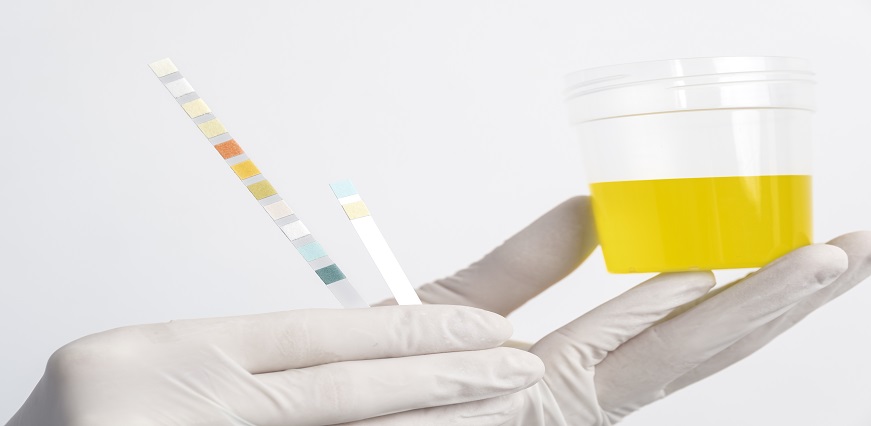Urine and allergy tests are two different types of diagnostics tests that can help the healthcare provider in detecting a health condition in an individual. The results from these tests can help the person take further steps to manage the symptoms of the health condition.
What is Urine Test?
A urine test, also known as a urinalysis, analyses a sample of your urine (pee) to detect various health conditions and measure different compounds in your body. It examines the appearance, content, and concentration of your urine. Urinalysis helps healthcare practitioners detect diseases in the early stages and recommend the right medical treatment.
Why is Urine Test Required?
A doctor might suggest to take a urine test for one or multiple of the following reasons:
- As a part of routine check-ups, pregnancy check-ups, or pre-surgery preparation to examine the overall health
- To screen health disorders like diabetes, liver disease, or kidney disease
- For finding unidentified health issues to reduce further complications
- Monitors health conditions when a person is receiving treatment
- If a person is experiencing symptoms like abdominal pain, frequent or painful urination, back pain, blood in urine, or other urinary issues
What is the Procedure for a Urine Test?
Typically, in a urine test, a urine sample of the individual is collected using the “clean catch”. This method helps prevent contamination of the urine sample with cells from the individual’s genitals. Afterward, you return the sample to the lab or clinic. The urine is then analyzed for color, concentration, protein, glucose, and other indicators.
Results typically come within a few hours or a day, helping diagnose infections, kidney problems, or diabetes. For this, the individual will get a specimen cup, sanitary wipes and specific instructions for the urine sample collection. The sample is collected early in the morning when the urine is most concentrated.
What is Allergy Test?
Allergy tests are typically taken to identify the allergens causing certain allergy symptoms in a person. They help determine if a person has an allergic reaction to a substance. The most common allergy triggers include food items, pollen, pets, mould, latex, etc. There are different allergy test methods that can help get accurate results, such as skin prick test, patch test, intradermal skin test, blood test, and oral challenge test.
Why is Allergy Test Required?
An allergy test is recommended for people when they are having allergy symptoms that bother them. This test can help identify the allergy triggers that worsen their symptoms so the healthcare provider can offer an appropriate treatment. By taking an allergy test, the healthcare provider can detect the following allergic conditions:
- Hay fever or allergic rhinitis
- Hives
- Dermatitis, called eczema
- Skin allergies
- Food allergies
- Penicillin allergy
- Bee venom allergy
What is the Procedure for an Allergy Test?
The allergy test procedure exposes the individual to the specific allergy triggers to gauge their body’s response to them. If the person is allergic to those triggers, they will produce antibodies to fight the triggers, causing an allergic reaction. The following are the most common procedures for allergy testing:
- Skin prick test: A thin needle is used for pricking the skin on the individual’s forearm or back with potential allergens. The provider might also put a small amount of allergens onto the skin and scratch the area.
- Blood test: A sample of the individual’s blood is taken and tested to measure the amount of antibodies.
Urine and allergy tests provide valuable insights into your health condition and help the doctor develop the right treatment plan. You can get urine or allergy testing done at affordable prices at reputable pathology labs like Max Lab.



